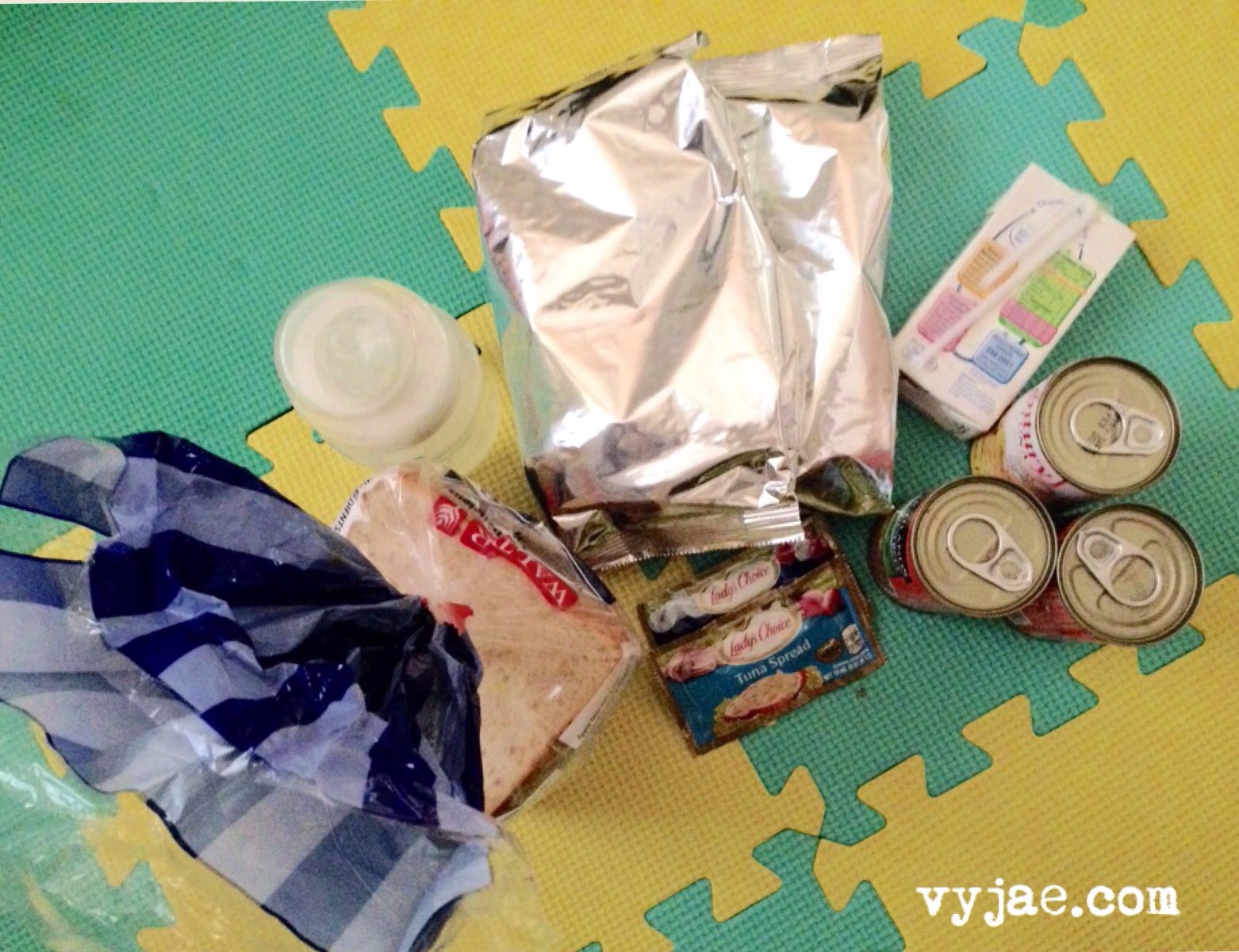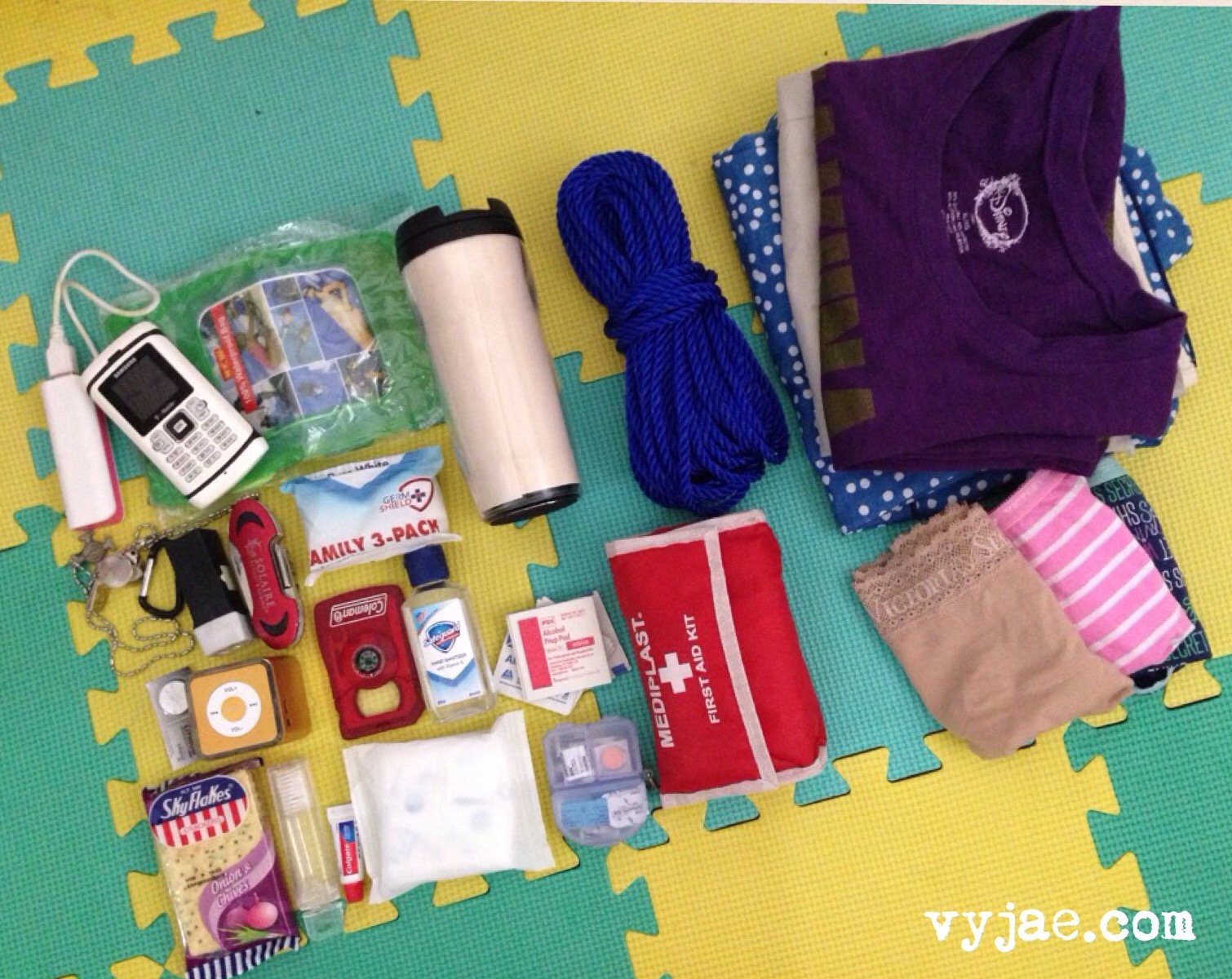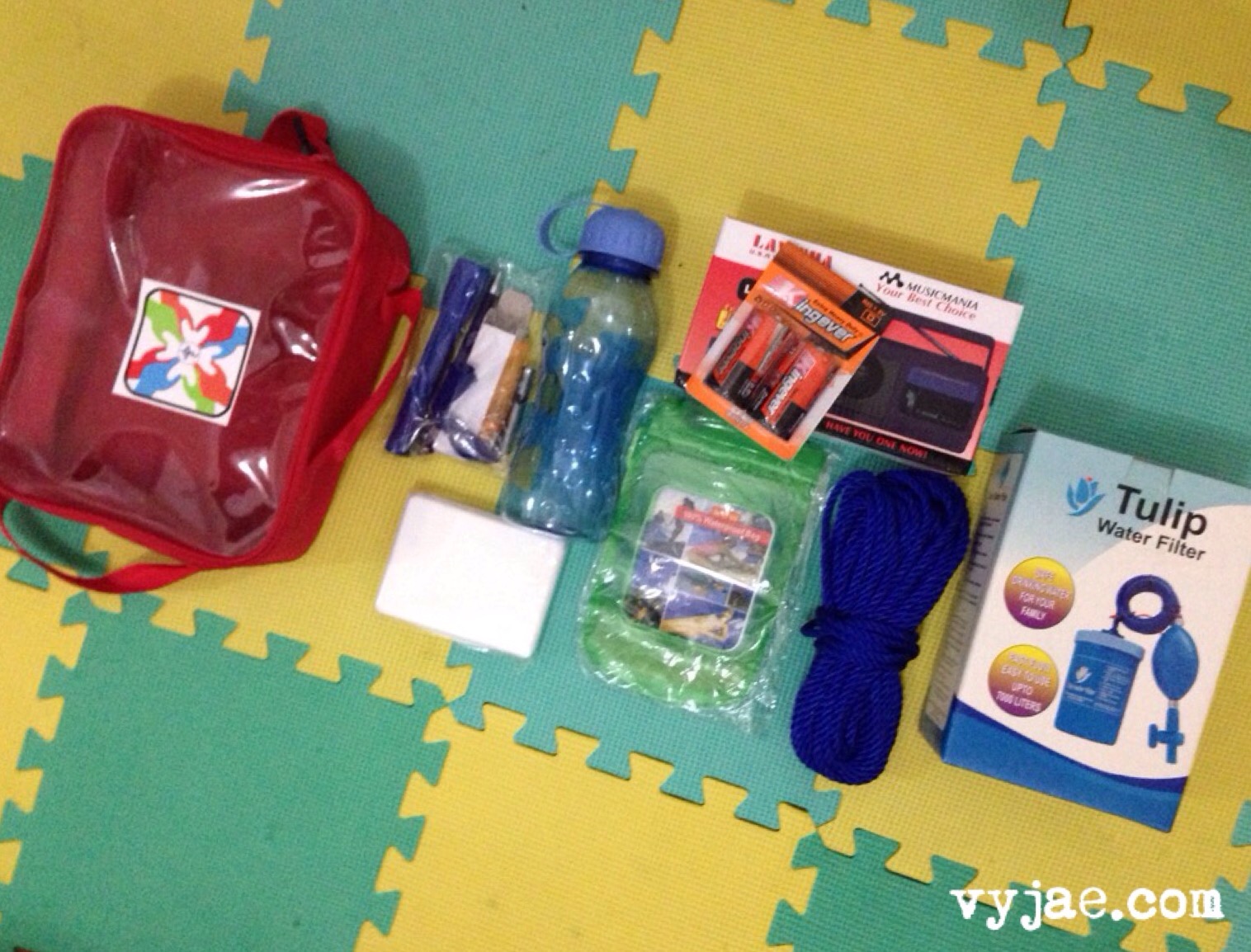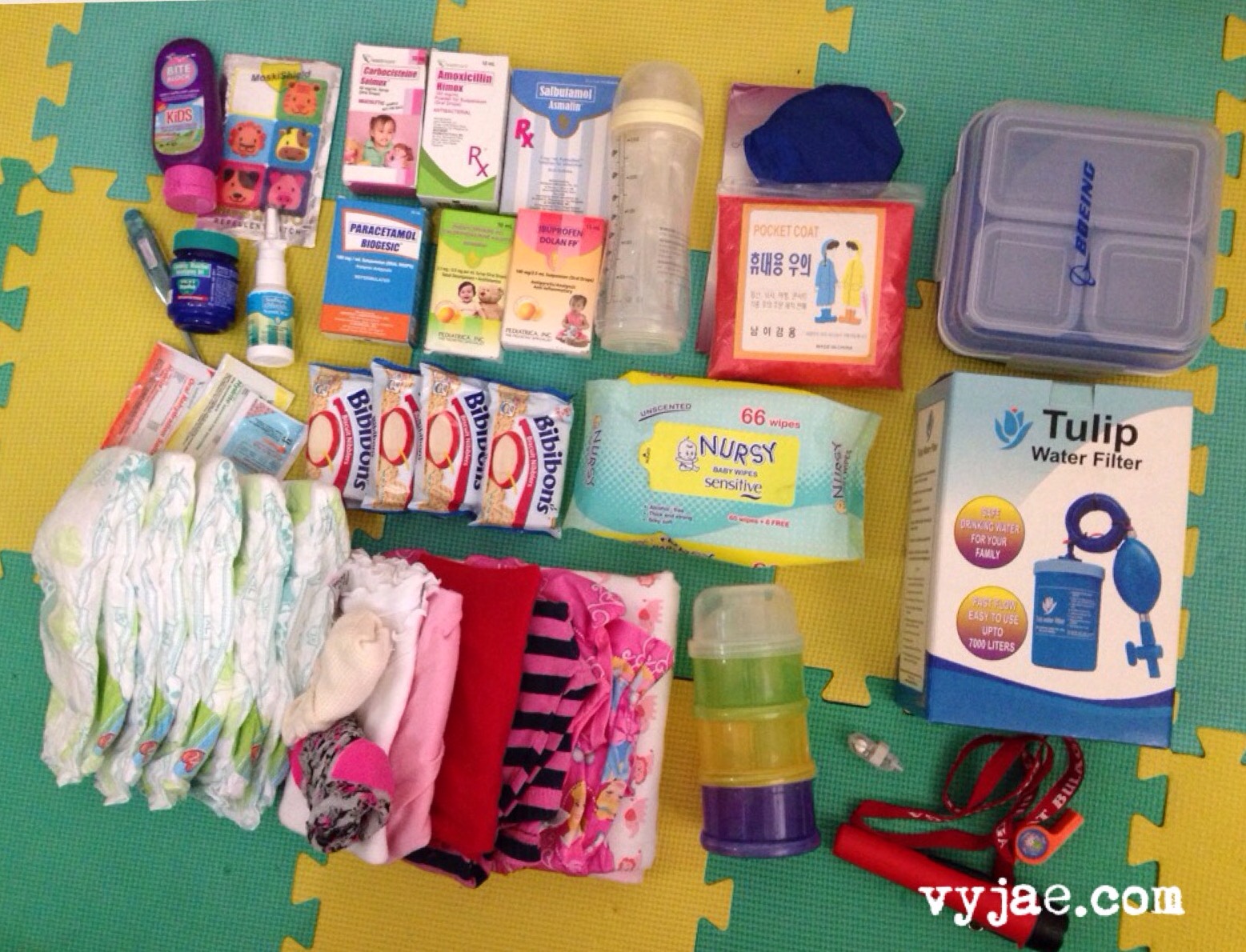I’ve finally done it. I’ve assembled an emergency bag and created a communication plan for my family in case of an emergency. I haven’t been this paranoid and O.C. until recently, after all the news, about “THE BIG ONE” that is due to hit the West Valley fault in Manila any time soon. I got so rattled just by the thought of how to survive such… and this time with a baby.
I’ve somehow survived several disasters in the past (Mt. Pinatubo erruption and earthquakes in Malolos, Typhoon Ondoy in Quezon City, Typhoon Sandy, while in the U.S.) but I am not proud of how unprepared I was, when caught in those situations. It’s a different story now, since I have another life to save, a very precious one at that.
After several discussions (well, more of a debate actually) with my parents and sibblings, and with daddy kokoy’s approval we finally agreed on leaving the high-rise building we’ve been residing in for years now to stay in Bulacan instead. For my family, that is one less a worry.
With our new location quite far from the West Valley Fault, our focus now is how to deal with rampaging water and flood, just incase the aging Angat Dam gives-in from the water pressure that may be caused by the earthquake. Worse case scenario (knock on wood), our town may be wiped-out.
Initiate a communication plan with your family as early as now. Here’s what I suggest we all do:
Designate an out-of-state contact. This will be a resource and point person for your family to call.
Choose a location other than your home where your family can meet. (you’ll need to go there in case of a disaster. meeting places can be a church, school, shelter, or a coverd area. Brief little children in the family so they know exactly how to get there).
Designate a trusted family member or friend who can pick up your kid at child care or school if you are unable to get there in a disaster situation (be sure that you give official permission to release your child to that person).
Write down emergency hotlines (and put it in your wallet. Include contact names, your emergency location, and the out-of-state contact number).
Write contact infos for your child to have in case of an emergency and leave one in his backpack and one with child care or school. In my case, i’m getting my daughter a personalized dog tag with information.
Remember these are only guidelines, and you may customize everything to suit the needs of your own family
I have put together a comprehensive list of things i want to consider in such disaster. And I’d like to share and help you do the same.
What’s Inside my Emergency Bag
Dispossable milk bottle (with liners)
Water filter (in case the dam gets damaged, expect that there will be no water supply in the days to come)
Plenty of diapers (I recommend including about 20 disposables and 1or 2 lampin or cloth diapers)
Baby wipes (these are great for sanitizing as well)
1 muslin wrap (or towel)
Atleast 5 pieces of extra clothes for the baby, underwears and socks (as much as u can carry)
Small comfort toys (if you child has a specific toy or blanket that she really loves)
Medicines. It never fails that kids get sick as soon as you are somewhere WITHOUT your medicine. So this is a definite requirement for any child disaster kit.
Thermometer (incase)
Hydrite (you don’t want your baby dehydrated at times like this)
Saline Solution loosens mucous and syringe sucks water/mucous/misc out of ears, nose, mouth etc.
Diaper rash cream (the last thing you’d want in an emergency situation is a sore bum and nothing to treat it with)
Mosquito repellant (expect lots of mosquitos because of the flood)
Disposable raincoat (to keep the baby dry)
Foldable fan (expect no electricity, no electric fan)
Flashlights (with batteries and extras)
Whistle

Milk (track expiration dates and rotate through them frequently)
Food (bread & light snacks, and be sure to always have fresh food on the go)
Canned goods (in easy open cans)
Instant drink (with straw)

Waterproof bags (for cellphones, radios and important documents)
Cellphone (always keep it charged)
Power bank (always keep it charged as well)
Rope (a sturdy and long one)
Clothes (atleast 3pcs, plus underwears)
Radio (with batteries of course)
Swiss knife (with can opener, scissors)
Flashlights & whistle
First Aid Kits & Medicines (a must)
Sanitary Napkins
Water (as much as you can carry)
To add to this list: life jacket, helmet, personalized dog tag for my baby with daddy’s contact info.)
I found preparing these to be a little difficult, but it’s always better to be ready than sorry. Always think of the worse scenarios.. like if you are separated from your child.
Below, is a Survival Kit that Unilab (props to the management) distributed to its employees (my brother and my sister-in-law included). I hope every company would show the same concern and preparedness at times like this.

I will admit that this list may be overwhelming but still lacks some important stuff, and will probably take time to complete but if we work on it a little at a time, it could not only make our lives easier in a disaster but it could save us and our loved ones!
What would you add to this list?




7 Responses
I’m planning to do this as well but have yet to do so. We’re actually just a few meters from the fault so I’ve started practising the little one to drop and find cover already. Will definitely take inspiration from your list. 🙂
Gosh! I just posted my entry earlier about emergency survival kit too and reading your post about it made me really praning now!! I have to complete it as soon as possible na!! Thanks for the list, some were not included in mine so I’ll take note!
ah talaga? sige let me check it out later. i’m sure we can all learn from each other
There’s no harm in being prepared … I think it would also be nice to have an emergency drill at home, every now and then 🙂
OMG i don’t have an emergency bag yet but I’m planning to put it together as soon as possible. We’re actually on the West Valley Fault but it missed our house by a few meters. (as in, few!) it’s not high rise, we live in a house, but it seems so wise to simply move, but not an easy thing to do.
The move from transferring to a safer ground is a smart one. I should also come up with emergency kits for the whole family even if I live away from the fault line and no single flooding experience in our area. Lucky me I live in San Juan. Thanks for sharing.-MACY
I read that you listed whistle. I think that’s very important especially if you are underground. It can help people locate you easily.
xoxo
MrsMartinez